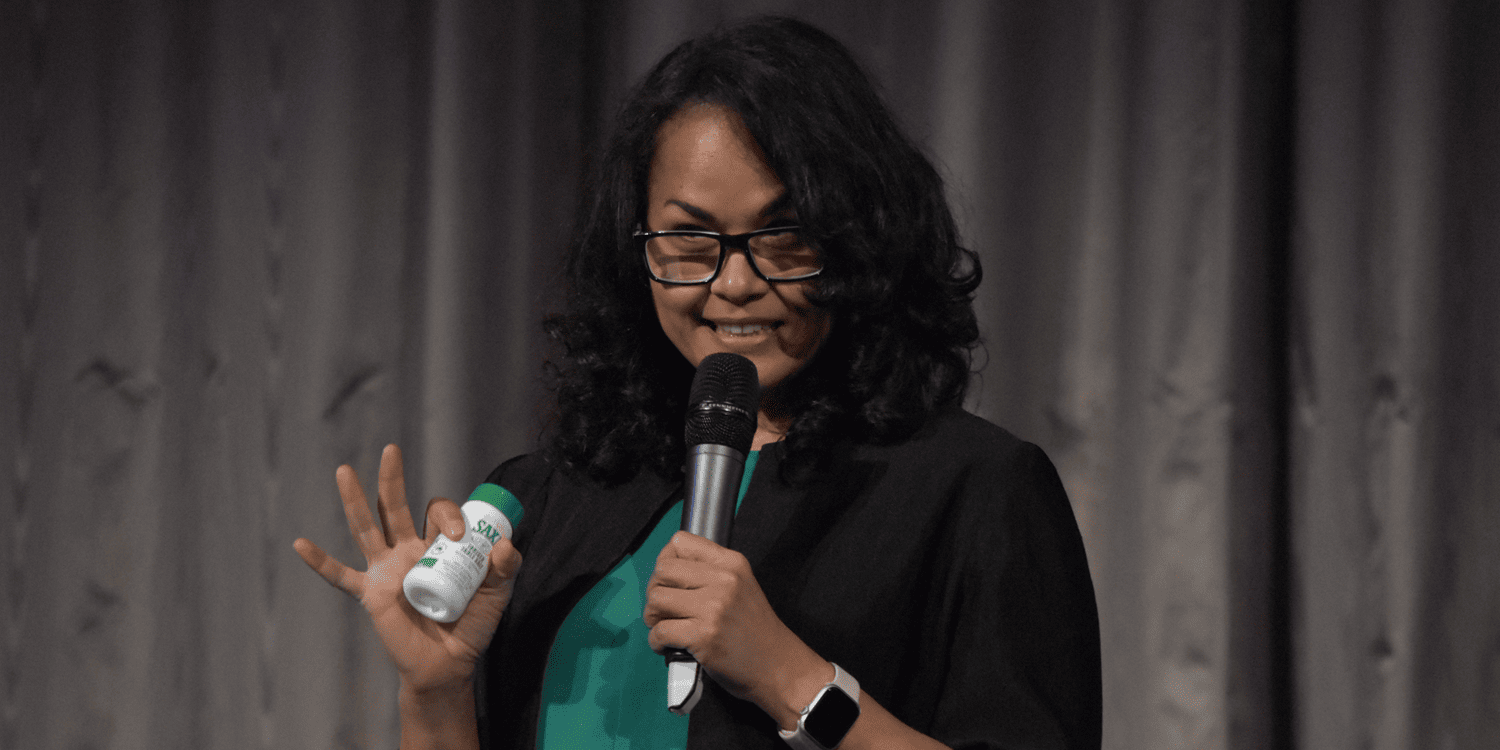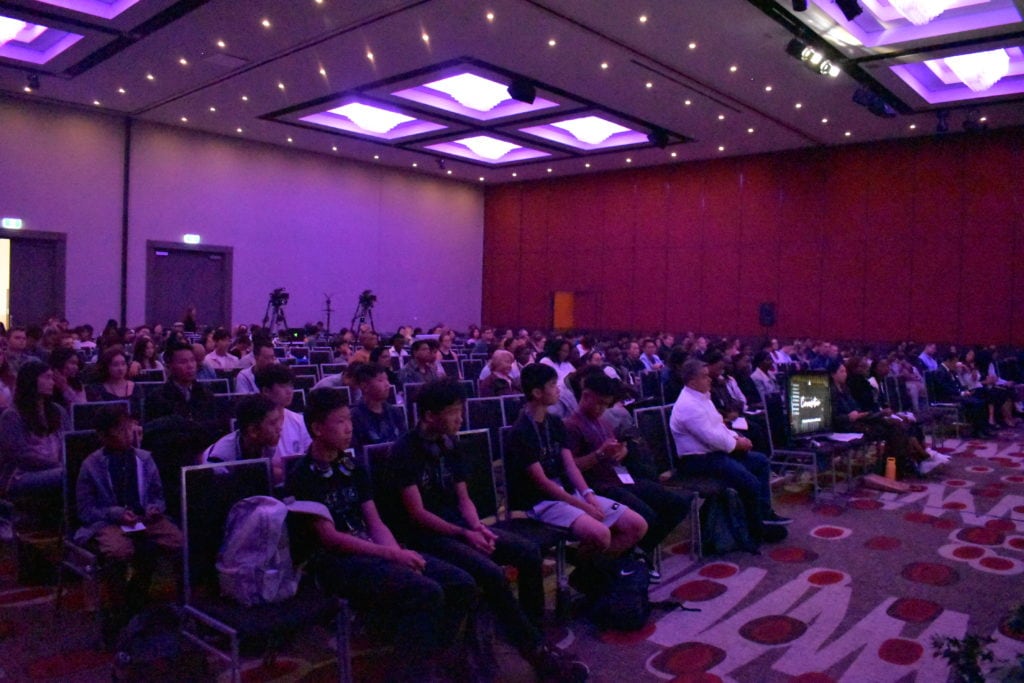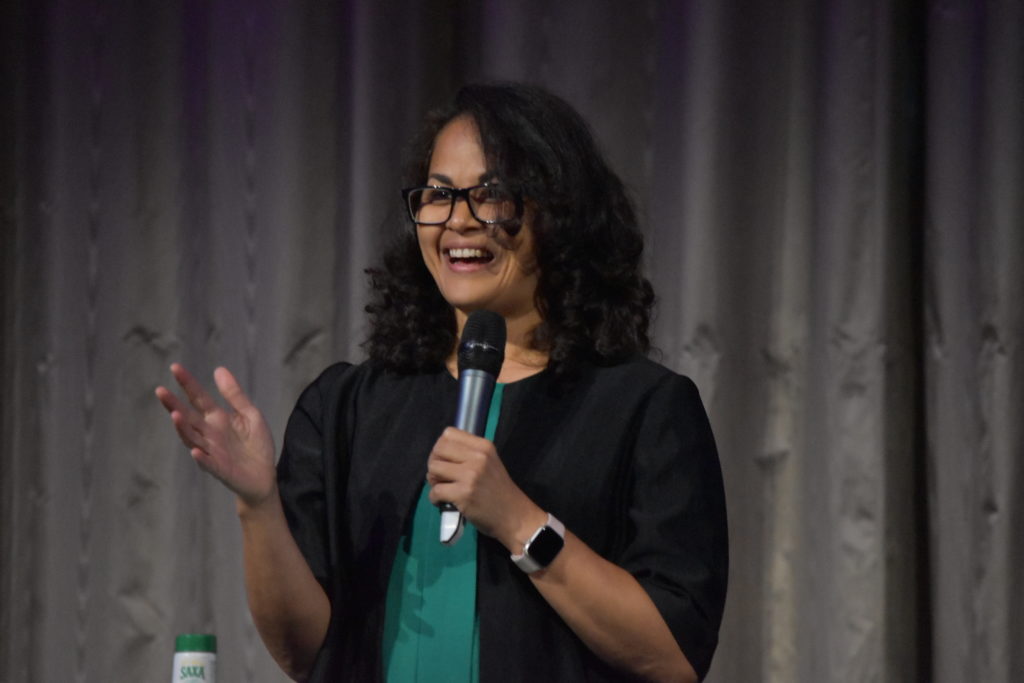
A presentation on the second day of the 2024 Adventist Youth for Christ (AYC) Conference in Melbourne, Australia, raised a discussion of the importance of salt for human bodies and the profound spiritual lessons that result from Jesus’ description of His followers as “the salt of the earth.”
On the morning of January 26, Christiana Leimena, health ministry director of the Greater Sydney Conference of the Seventh-day Adventist Church, shared statistics and reflected on the implications for committed young Seventh-day Adventist members. She also encouraged young AYC attendees to get more involved in Adventist health ministry initiatives as a way of following in Jesus’ footsteps.
The Importance of Salt
Salt, or sodium chloride, is very important for health, and not only because it adds flavor to food, Leimena reminded AYC members. In Australia, the recommended intake is about 6 grams a day (2,300 milligrams of sodium), she said, but Australians eat on average 9 grams of salt each day. And 80 percent of it comes from processed foods, which can be detrimental to human health.
Salt has many essential uses and applications, Leimena emphasized. She mentioned that it contracts and relaxes muscles, conducts nerves impulses, and maintains a proper balance of water and minerals in the body. Beyond the human body, it preserves and flavors food, clean up spills, soothes a bee sting, and creates traction on frozen roads.
Beneficial to Others
But moving away from our everyday uses of salt, Leimena reminded AYC attendees that in Matthew 5:13, Jesus told His followers, “You are the salt of the earth.” “What did Jesus mean?” she asked. She answered, “That you and I are meant to be beneficial to others.”
In the following minutes, Leimena drew spiritual lessons from images related to salt consumption. First, she mentioned a saltshaker, which she compared to Jesus. “Jesus wants to sprinkle us … so we can give flavor to others,” she said. “If you salt an egg, the egg becomes salty, not the salt eggy.” Jesus was saying that He wants us to add season wherever we are, to an experience or the atmosphere at the time.
Leimena cautioned, however, that, as Jesus reminded His hearers on the Sermon on the Mount, salt can lose its flavor. There’s a spiritual lesson in this, she said, because the saltiness represents the love of Christ and His righteousness. Unlike salt, however, we can choose to share that saltiness — that love of Christ — with other people. First we need to make sure we ourselves spend time with our Savior, because “we cannot give to others what we do not possess,” Leimena said. God tells us, “Lean on Me, and I will make you salty. I will put the flavor in you, My flavor, Me, and then you will be salty.”
Another spiritual lesson comes from the fact that the salt in the saltshaker is useless unless it leaves the saltshaker and touches the thing it wants to flavor, Leimena said. “Contact must be made, and God wants us to be influencers by touching the live of others.” It’s what Jesus did when He was on this earth, she said. “He only had three years to be an influencer; it’s not a long time,” she said, “but He influenced His community and beyond by teaching, preaching, and healing.”
Leimena reminded AYC attendees that Jesus spent one-on-one time with people. “Personal contact makes such a great difference,” she emphasized.



An Influencer Like Jesus
Being an influencer like Jesus in this time and age implies sharing the gospel of Jesus, but also blending it with health, Leimena said.
For those young people who might be thinking that perhaps health ministries is not for them, Leimena shared some sobering statistics. The leading causes of death among 15-to-24-year-old males in Australia include suicide and self-inflicted injuries, alcohol use, road traffic injuries, and depressive disorders. In females, there is a heavy burden of anxiety disorders, depressive disorders, eating disorders, and other issues, Leimena shared.
The needs are overwhelming, Leimena said. “We have peers who are in need of encouragement, who are broken, who are probably discouraged, who are needing that lift, or just an ear to listen,” she told attendees. “Health ministry is still relevant for young people.” She added, “I want you to reconsider joining in the mission that Jesus practiced, which was a blend of gospel and health.”
Youth Involvement in Health Ministry Is Key
In the last part of her presentation, Leimena reminded AYC members that youth is a key transition period in a person’s life. Statistics show that “if you [as a young person] are healthy physically and mentally, you are more likely to have better educational outcomes, make successful transition into full-time work, develop healthy adult lifestyles, [and] experience fewer challenges forming families and parenting, that is to say, fertility,” she shared.
Against that background, Leimena appealed to young people to embrace the call to work in health ministry. In her experience as regional church health ministries director, she said, her volunteers are usually Adventist church members over 50 years old. “There’s nothing wrong with that, but for me, I see it as an opportunity that is lost when I don’t see more young people coming on board and being involved in health mission.”
In preparing for that mission, Leimena called young Adventists to value the health message God has given them by adopting protective health factors. They include physical activity, emotional support, and social activities to connect with others, but also proper nutrition and adequate sleep. “These are basic things, but sometimes they are left on the side, and we forget about them,” she said.
These protective factors help build resilience when we face challenges, stress, or other issues, Leimena explained. And while she invited those struggling with mental issues to seek help immediately, Leimena also called young people to think about those who are around them and need their support.
Leimena finally called attention to many social media channels on health issues led by young people who often do not share the same Adventist health values. “I want you to consider where you can fit within the mental health space, and I am not talking just about social media,” she said. She then listed resources available for young people to get involved and become influencers.
“Look out for your friends. Embrace health mission. Become an influencer, the salt of the earth,” she said.